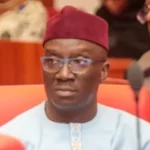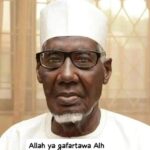The recent death for Professor Chinua Achebe is for many in my generation a monumental loss. We owe him two things, first the joy of reading stories that made sense to us.
Having gone through primary schools that had neither libraries nor storybooks, it was only in secondary school that many of us encountered the joy of reading literature and Achebe was one of the first authors we came across. The second thing we owe Achebe is interrogating the political condition we have found ourselves in.
His novels are extremely rich and incisive texts of political analysis. As I have spent the last four decades studying politics, this tribute to the father of African literature is about using Achebe to read African politics.
Achebe’s gift to world literature, “Things Fall Apart” was published at the height of the nationalist period just before most African countries achieved their independence.
For Africans, the nationalist euphoria of that period associated independence with progress, liberty, nationhood and development. The social sciences were infected with the same euphoria. Africans had successfully challenged colonial anthropology, which had tried to demonstrate the primitive character of the African peoples as a justification for the colonial “civilizing mission.”
The modernization school of African social science was in gestation and henceforth; the new paradigm was that powerful forces that will transform African societies in the image of Western societies had been set in motion. These forces of westernization/modernization such as education, political parties, trade unions, transport and communications, commerce, urbanization etc were conceived as necessarily leading these “new nations” straight into modern civilization. This was of course a new version of the civilizing mission.
Africanist social science developed a strong teleological dimension and few scholars questioned the generally perceived linear movement from tribes to nation states and from the traditional to the modern before the mid 1960’s when it became clear that the assumptions behind the dichotomies had become untenable.
The social science literature I learnt were steeped in the modernisation paradigm and showed little evidence of the internal political, social and economic problems that were developing in the continent. In that context, creative writers became the most perceptive observers of the trajectories along which African societies were developing. The big advantage creative writers had was that they sourced their creativity in the mundane descriptions of the dynamic and changing worlds around them while the social sciences were lost in the ideological narrative of modernisation theory.
The creative writers had the great privilege of being ignorant of the teleological paths and concerns being drawn and imposed by the social scientists and it is not surprising that social scientists did not figure in the first generation of African writers. In describing and commenting on the changes in the world around them, African writers became part of the first set of intellectuals to understand the real path along which their societies were developing.
Achebe has always been conscious of the political character of his work. As he puts it: “Everything in our society has to do with the political situation. I never define politics in a narrow sense. I am not talking about politics like NCNC versus Action Group. That’s one level of politics. I am talking of politics in a general sense which means in my view the ordering of society. So there’s nothing which you do really that doesn’t have a bearing on politics.”
Achebe’s motivation to write was partly political. He was disgusted by the superficial images of an unchanging and static Africa and the racist undertones of certain white anthropologists and writers such as Conrad’s “Heart of Darkness” and in particular Cary’s “Mister Johnson” that grossly misrepresented the reality of his society. He therefore decided to narrate the unfolding and dramatic story of his people. In so doing, politics remained a central aspect of his work:
With varying degrees of emphasis, all of Chinua Achebe’s novels explore the use and abuse of power by those who wield it. In “Things Fall Apart”, Okonkwo’s absolute patriarchal power over his household is analyzed. The focus of “Arrow of God” is the religious and social power of Ezeolu, the Chief Priest. “No Longer at Ease” and “A Man of the People” are about bureaucratic power while “Anthills of the Savannah” is about the apparently absolutist power the African dictator tries to wield.
There has been too much myth and propaganda about traditional African political culture. Missionaries, colonial officials and their intellectuals who were also called anthropologists had an interest in portraying the continent as a barbaric and brutal culture characterized by intense intertribal warfare, murder of twins and barbaric pagan rites.
African nationalists on the other hand, tended to romanticize the civilization of their people by painting pictures of a rural idyll, in equilibrium with nature, dance and poetic emotion with political systems that practiced village democracy. African nationalist leaders such as L. S. Senghor, J. K. Nyerere and Kwame Nkrumah argued that Africa’s traditional form of political organization was democratic but they all ended up devising more or less authoritarian forms of government justified on the grounds of the so called African democracy.
As has been argued by Abdoulaye Bathily, what is often presented as democracy and social harmony in pre-colonial Africa is in reality a facade that hides serious social tensions and contradictions between ruling or powerful elites and the wider society. While it is not doubted that there were rudiments of democratic practice especially among the non centralized communities, it is wrong to consider these societies as democratic.
Achebe’s writings which focus on Igbo societies is important in this regard as the Igbos are one of the most republican and egalitarian non-centralized communities in traditional Africa.
In “Things Fall Apart” and “Arrow of God”, we are presented an excellent anthropological account of traditional Igbo society at the end of the 19th century. The political systems were republican and had some democratic rudiments but there were limits to democratic practice.
 Join Daily Trust WhatsApp Community For Quick Access To News and Happenings Around You.
Join Daily Trust WhatsApp Community For Quick Access To News and Happenings Around You.


